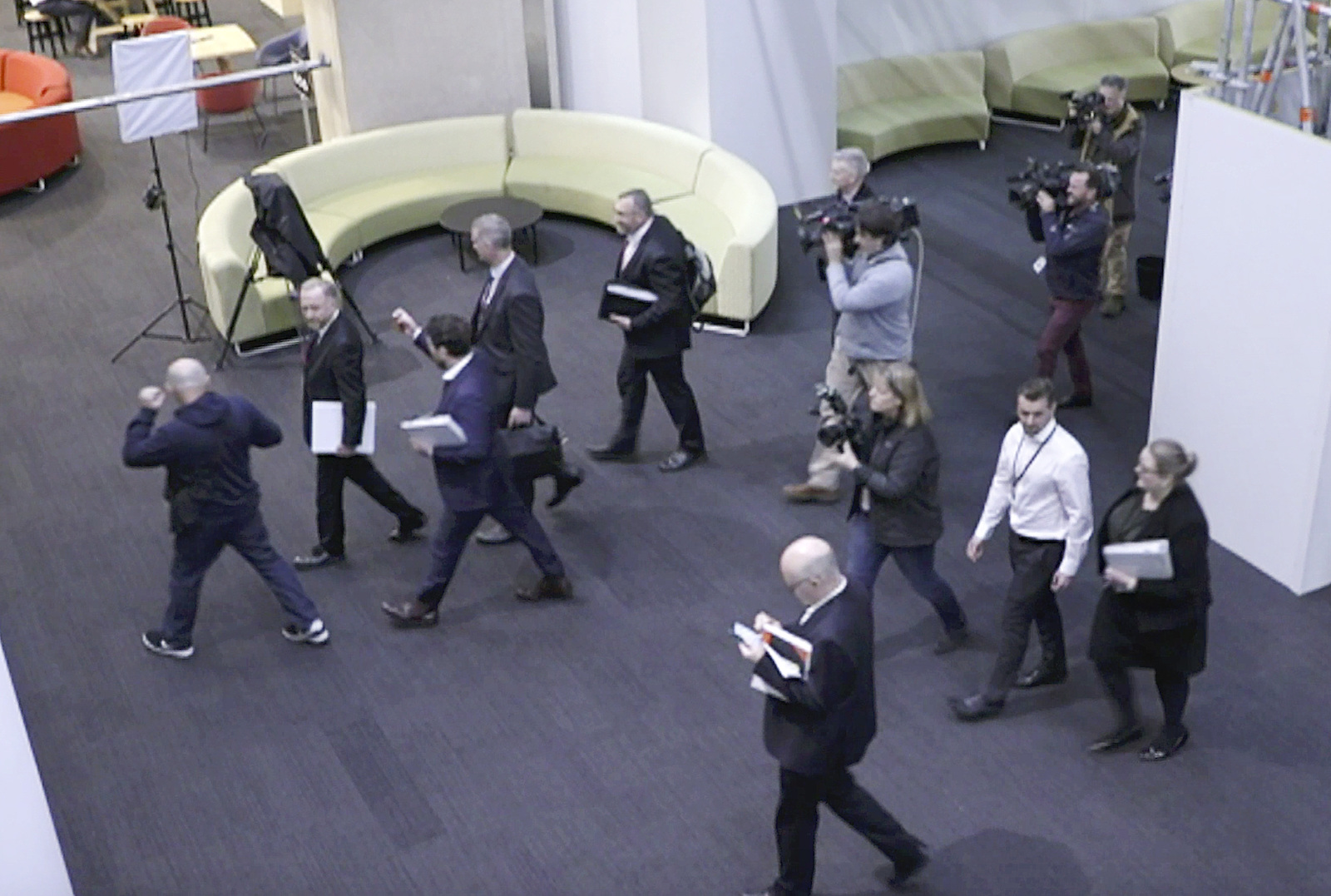
That was one of several police actions against journalists that brought forward the issue of Australian press freedom — and its limits. Australia is the only liberal democracy that has no equivalent to the United States’ First Amendment protecting freedom of the press at a foundational level. As Rebecca Ananian-Welsh wrote at the time:
In this context, journalists are in a precarious position — particularly journalists engaged in public interest journalism. Their work is vital to government accountability and a vibrant democracy, but it has a tense relationship with how Australia’s government conceives of national interests.
National security law has severely undercut source confidentiality by increasing and easing data surveillance. National security laws have also criminalized a wide array of conduct related to the handling of sensitive government information, both by government officers and the general public. And these laws are just a few parts of a much larger national security framework that includes control orders, preventative detention orders, ASIO questioning and detention warrants, secret evidence, and offenses of espionage, foreign interference, advocating or supporting terrorism, and more…
One of the most disturbing outcomes is not the potential prosecutions or even the raids themselves, but the chilling of public interest journalism. Sources are less likely to come forward if they face risk to themselves and a high likelihood of identification by government agencies. And journalists are less likely to run stories if they know the risks posed to their sources and perhaps even to themselves.
As an ABC piece on the raid headlined it: “AFP raid on ABC reveals investigative journalism being put in same category as criminality.” (Federal police had even sought to fingerprint journalists in order to connect them to individual documents. It’s since come out that at least one Australian intelligence agency was involved.)
Well, there’s been a positive turn in the case and I wanted to mention it to Nieman Lab readers who’d seen that piece earlier this summer. From veteran Australian political reporter Michelle Grattan:
The government has given a new direction to the Australian Federal Police to prevent repeats of the recent raids on the media when leaks are being investigated.
The number of investigations will also be cut back, because departments referring leaks of official material to the police will have to outline the harm the disclosure poses to national security.
The changes, announced by Home Affairs Minister Peter Dutton late on Friday, follow a backlash against the government after the Australian Federal Police raided News Corp journalist Annika Smethurst and the ABC over separate leaks.
The direction applies to both current and prospective investigations, so would likely mean the police will drop off their pursuit of the media in these instances, although the ultimate decision rests with the AFP.
The directive does not ban investigations into journalists’ sourcing. But it does say the government expects “the AFP to exhaust alternative investigative actions prior to considering whether involving a professional journalist or news media organization is necessary.” And police will be expected to “take into account the importance of a free and open press in Australia’s democratic society and to consider broader public interest implications before undertaking investigative action involving a professional journalist or news media organization.”
This is no doubt an improvement when it comes to a free and vibrant press. But not everyone is happy. The opposition Labor Party criticized the government for only setting “expectations” for police restraint instead of harder rules (and for dumping the news at 4 p.m. on a Friday afternoon).
And, as the University of Melbourne’s Denis Muller wrote, the new restraint being shown toward journalists doesn’t extend to those who give them the information they need:
While the ministerial direction represents a genuflection in the direction of press freedom, it provides nothing by way of protection for whistleblowers. The direction says it “does not constrain investigation by the AFP of unauthorised disclosure of material made or obtained by a current or former Commonwealth officer.”
So it seems the pursuit of whistleblowers — the people who provide journalists with leaked information — can continue unabated. They still have only a demonstrably useless law — the Public Interest Disclosure Act 2013 — offering a fig leaf of protection…
If the direction is to be taken as meaning only leaks significantly compromising national security are to be referred to the police, then there may be a larger safe space within which journalists can operate.
But the hunt for whistleblowers will go on.
Finally, the nation’s media leaders are getting the chance to complain about the entire constellation of restraints on press freedoms in Australia, as part of a parliamentary inquiry. Here’s an AP report from today:
A dozen senior executives from Australia’s major news organizations presented a united front at the Sydney hearing, demanding changes to national security laws to protect journalists.
News Corp Australia executive chairman Michael Miller said Australia has “many laws that criminalize journalism” and which are “creating a secret society that most Australians would not recognize as our own.”
Miller criticized lawmakers for stamping the words “secret” or “classified” on documents, and then hiding behind laws that keep Australians in the dark.
“We may not be living in a police state, but we are living in a state of secrecy,” he said. “The package of law changes that we are seeking will put a stop to the creeping secrecy that shrouds Canberra.”
Various media chiefs described a culture of “intimidation and secrecy” having a “chilling effect” on legitimate public interest journalism.
Here’s an ABC Radio piece on the hearing, and here’s an ABC television piece.
Leave a comment